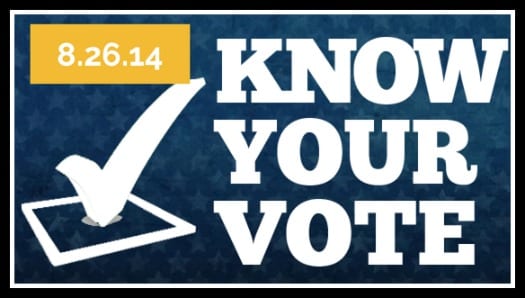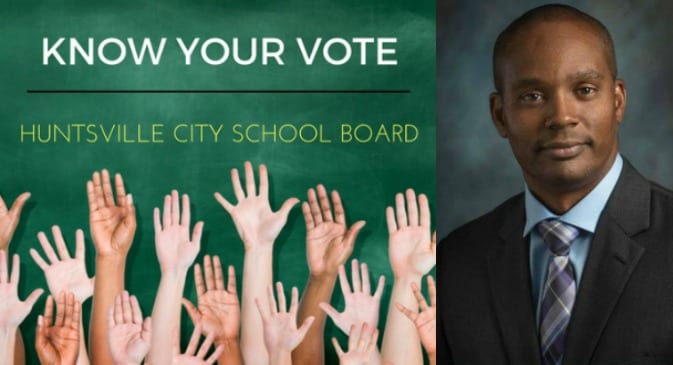Meet the School Board Candidates: Kathie Rooker (District 3)


Q. What made you want to run for this office?
My decision to run for the Huntsville City School Board is based on my concern for Huntsville and our school district. We get one chance at getting it right educating the children of Huntsville. Years are not repeated, concepts are not revisited, youth is not recovered — Huntsville City Schools can get it right the first time — with the right leadership. I believe I can provide that leadership for our city. Our children deserve it, and our city needs it.
Q. Are you capable of and willing to do the research necessary to ask questions about the policies, procedures and recommendations that the superintendent is bringing to the board for approval? How do you plan to fulfill the board member role of administration and supervision of the public schools as detailed in School Board Policy 2.2?
Yes – My background includes financial and data analysis. By nature, I am an “information gatherer.” My methods include talking with parents and teachers across multiple districts, researching issues, drawing on personal experiences, and thinking thoughtfully on the concerns. In all my leadership roles, I have challenged respectfully decisions that did not resonate or put student’s interests first. The best outcomes come from a variety of perspectives and active involvement from multiple parties in the decision making process. Decisions concerning our children and schools are too important to rubber stamp.
Q. Do your children (or school age relatives) attend Huntsville City Schools?
Yes – I have two children currently enrolled in Huntsville City Schools. My 2 older boys are a rising 6th grader and 5th grader. I also have a two-year-old son that I plan to enroll in our school district. My concern for Huntsville City Schools is for the long haul.
Q. What is your vision for the schools in your district?
My vision for our schools is to raise the academics across the district, improve the school climate, and re-engage parents. When new families move into the Huntsville area, they select where to live based on the success of the entire school district. Our schools need to grow academically. Reports continue to compare our schools to other schools in our district. We need to look to the best schools in Alabama and beyond as our benchmark for success.
Raising academics will be achieved by boosting enrichment in the younger grades, creating partnerships across schools in the same feeder pattern to share program successes, and building more academic teams to create a stronger foundation for students moving into middle and high school. My plan includes creating “Blue Ribbon Schools” and “Schools of Excellence” across South Huntsville and other parts of the city where there are none.
The school climate has suffered with the numerous and rapid changes in the district. The principal upheavals and teacher retirements have contributed to the climate concerns. My plan includes improving the relationship between the board and the teachers, parents, and citizens through honest and transparent communications. Further, I’d like to see stability with our principals by keeping them in the same school for at least three years and making teachers feel valued by allowing more creativity of instruction.
Parental engagement has waned over the last several years. The best results academically include three components – qualified teachers, prepared students, and engaged parents. My plan to re-engage parents include making the digital tools for monitoring academics more seamless for parents. I’d like to welcome parents back into our buildings and widen the group of influencers by hosting monthly meetings with PTA leaders but encouraging new faces to attend.
Q. What is your view of high-stakes standardized testing, and the use of those test results for the evaluation of teachers?
In general, I feel there is an over abundance of testing. I do support an objective evaluation of teachers. Our teachers are the most important factor in the successful education of our children. But, the district’s use of the STAR test, as a measure of teacher effectiveness, does not align with my personal observations of high quality teachers. The STAR test appears to be ambiguous and unpredictable and not designed to be a teacher evaluation tool. If we are holding teachers accountable for teaching the required standards in a grade, then the evaluation should be against mastery of the standards and student growth beyond the standards where appropriate. Any child that begins the year or semester having mastered standards needs to be challenged in other ways horizontally or vertically (depending on the subject). In the elementary grades, there are other areas of student development (science, social studies, art, music, creative writing, public speaking, etc) that is being pushed to the wayside because so much emphasis is put on the standardized tests. Teachers need more opportunities for creative teaching and inspiring students to be life-long learners.
Q. What is your plan for working with the other school board members, superintendent, staff, teachers, community to implement this vision?
If elected, I will work to reduce the political posturing and create a cohesive team on the board. Better decisions can be reached through lively discussions and debate, but a mutual respect must always be present. In the past, there has been a “count to 3” mentality on the board. I’d like to see the board counting to 23,000 (the number of students in our district). The success of all the schools in our district best benefits our city and neighborhoods. The success of some of our schools does not have to be mutually exclusive to the success of others.
My plan for working with the superintendent, teachers, and community is honest and transparent communications – listening and sharing, making our stakeholders feel valued, and rebuilding bridges with those in other parts of the city. Trust and respect is paramount to implementing my vision.
Q. What is your view of how the district’s limited funding should be divided among the needs of the district?
My personal philosophy has always been that money does not solve problems – well thought out plans and the execution of those plans do. It seems our district has made many decisions in recent times without looking at the short-term and long-term impacts of those decisions. I’d like to see a cost-benefit analysis for large financial decisions prior to approval. Specifically, how does spending this money benefit our students? For example, does spending a quarter of a million dollars on SMALLabs provide a quarter of a million dollars of improved education? How many students are reached? Are there other priorities that would benefit a larger population in more impactful ways? If elected, these are the types of questions I plan to ask prior to approving funding decisions. With that said, I believe every child in Huntsville deserves the highest quality education. There are opportunities for additional funding from other sources that I would encourage our district to pursue including business donations and grants.
Q. What is your view on the superintendent’s plans to close, consolidate, “turn around”, and “restart” many of the schools in our district?
Closing, consolidating, turning around, restarting, and building new schools does not change what is happening within the walls of those schools. I support the use of government funds to “turn-around” and “restart” schools, but the district must focus on stability in those schools through principal continuity and other factors. Some of our most turbulent schools have had principal changes every year or every other year. As an example, the district reconfigured several schools into P8 schools. After the announcement of the change, there was very little support from the district to make the transition and guarantee success. Many factors were dismissed such as the size and complexity of the student make-up, the physical limitations of the separated buildings, and the difficulty in creating a strong community with feeder schools coming in during the middle school years. The district must follow through with the necessary resources and principal longevity to make these transitions long-term successes.
The district also needs to consider as much the “what” as the “how” in making and sharing decisions regarding closing and consolidating schools. Huntsville citizens feel very connected to their neighborhood schools. Community involvement, open communications, and buy-in would make these decisions much less disruptive for our district.
Q. What is your view of the role that parents and the community should play in the governance of our schools?
Governance of our schools “officially” falls on the school board and superintendent. But, I view the success of our schools as a partnership with the community and parents. Education does not happen completely within the confines of a seven-hour school day. We need parents to feel they have a voice and that the school board listens. But, the needs of students must remain the priority. The community can provide powerful resources both financially and through volunteerism if they are inspired to do so by a school board they believe in. Working together, we can achieve the best schools in our state and beyond.
[sws_grey_box box_size=”450″]WANT TO MEET THE CANDIDATES IN PERSON? The Huntsville Council of Parent Teacher Associations is hosting a School Board Candidate Forum on Monday, August 18th, 2014. The event will be held at Huntsville High School from 6:30pm – 8:30pm. This forum will also be broadcast live on ETV (Channel 17 on Comcast and Channel 3 on Wow!) [/sws_grey_box]Rocket City Mom is a website about raising children in and around Huntsville, Alabama. Started in late 2010 by a local mom and newcomer to Huntsville, Rocket City Mom has grown into a thriving community of local parents and now boasts a staff of four, thirteen regular contributors, and tens of thousands of Tennessee Valley readers making it the #1 Parenting Resource in North Alabama.





